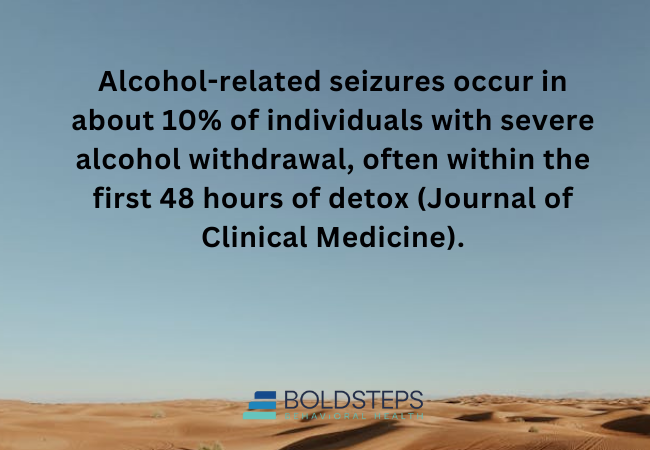Alcohol withdrawal is a serious and potentially life-threatening condition that occurs when someone who has been drinking heavily for a prolonged period suddenly stops or significantly reduces their alcohol intake. While many people assume they can simply quit drinking on their own, the reality is that alcohol withdrawal can lead to severe complications, including seizures, heart problems, and delirium tremens (DTs) if not managed properly.
Understanding the symptoms, timeline, risks, and best detox methods is essential for anyone looking to stop drinking safely. At Bold Steps New Hampshire, we offer a full continuum of care, including Medical Detox Programs, Alcohol Addiction Rehab Programs, Partial Hospitalization Programs (PHP), Intensive Outpatient Programs (IOP), Outpatient Treatment Programs, and Virtual Treatment Programs at our Behavioral Health Treatment Center in New Hampshire.
If you or a loved one are struggling with alcohol addiction, knowing what to expect during withdrawal and how to detox safely can be the key to a successful and lasting recovery.
Why Does Alcohol Withdrawal Happen?
Long-term alcohol use alters the brain’s chemistry by affecting neurotransmitters, particularly gamma-aminobutyric acid (GABA) and glutamate. Alcohol suppresses brain activity, creating a sedative effect. Over time, the brain compensates by increasing excitatory neurotransmitter activity to maintain normal function.
When alcohol is suddenly removed, the brain is left in a hyperactive state, leading to withdrawal symptoms such as tremors, anxiety, rapid heartbeat, and seizures. The severity of withdrawal depends on:
- Duration and intensity of alcohol use
- Genetic factors and overall health
- Co-occurring mental health disorders
- Previous withdrawal experiences
The most severe cases of withdrawal require medical intervention to prevent life-threatening complications.
Stages and Timeline of Alcohol Withdrawal
Alcohol withdrawal symptoms typically begin within 6 to 24 hours after the last drink and progress over several days.
Stage 1: Early Withdrawal (6-12 Hours After Last Drink)
- Anxiety and restlessness
- Nausea and vomiting
- Sweating and rapid heartbeat
- Insomnia or difficulty sleeping
- Tremors (shaky hands)
Stage 2: Peak Withdrawal Symptoms (24-72 Hours After Last Drink)
- Increased blood pressure and irregular heartbeat
- Fever and chills
- Confusion or difficulty concentrating
- Severe mood swings and irritability
- Visual or auditory hallucinations
- Seizures (in severe cases)
Stage 3: Delirium Tremens (DTs) (48-96 Hours After Last Drink)
Delirium tremens is a severe, life-threatening condition that requires emergency medical care. Symptoms include:
- Severe disorientation and confusion
- Seizures and muscle tremors
- Hallucinations (seeing or hearing things that aren’t there)
- Rapid heart rate and dangerously high blood pressure
- Extreme agitation and aggression
Without medical treatment, DTs can be fatal in up to 37% of cases (National Institute on Alcohol Abuse and Alcoholism – NIAAA).
Stage 4: Post-Acute Withdrawal Syndrome (PAWS) (Weeks to Months After Detox)
Some individuals experience long-term withdrawal symptoms known as Post-Acute Withdrawal Syndrome (PAWS), including:
- Fatigue and low energy
- Depression and mood swings
- Difficulty focusing or thinking clearly
- Cravings for alcohol
PAWS can last for weeks or months, making ongoing behavioral therapy and relapse prevention strategies essential for long-term recovery.
Why Quitting Cold Turkey Can Be Dangerous
Many individuals attempt to quit drinking abruptly (cold turkey) without medical supervision, believing it to be the fastest way to regain control of their lives. However, sudden alcohol withdrawal without medical support can be dangerous and even life-threatening.
Risks of Quitting Alcohol Cold Turkey
- Seizures – Alcohol withdrawal seizures can lead to brain damage, injury, or death.
- Delirium Tremens (DTs) – A severe withdrawal complication with a high mortality rate if untreated.
- Heart Problems – Withdrawal can trigger irregular heartbeats, high blood pressure, and heart attacks.
- Severe Dehydration and Malnutrition – Alcohol use depletes essential nutrients, and withdrawal symptoms like vomiting and sweating increase the risk of dehydration.
Attempting to quit drinking without medical supervision puts individuals at a higher risk of relapse and serious health complications. The safest way to detox is through a Medical Detox Program with professional monitoring and medication support.
How to Detox from Alcohol Safely
At Bold Steps New Hampshire, we provide a comprehensive, medically supervised detox program to ensure that individuals detox safely and with minimal discomfort.
1. Medically Supervised Detox
Our Medical Detox Program provides:
- 24/7 monitoring to track withdrawal symptoms and prevent complications.
- IV fluids and nutritional support to prevent dehydration and vitamin deficiencies.
- Medication-Assisted Treatment (MAT) to ease withdrawal symptoms and prevent seizures.
2. Medication-Assisted Detox (MAT)
Certain medications can stabilize the nervous system and reduce withdrawal symptoms. Commonly used medications include:
- Benzodiazepines (e.g., diazepam, lorazepam) – Reduce anxiety, tremors, and seizures.
- Anticonvulsants – Help prevent seizures and regulate brain activity.
- Beta-blockers – Reduce high blood pressure and rapid heart rate.
- Nutritional supplements (B vitamins, thiamine, folic acid) – Prevent cognitive complications like Wernicke’s encephalopathy.
3. Transition to a Structured Treatment Program
Detox alone does not address the root causes of addiction. After detox, individuals should enter a structured treatment program for long-term recovery.
Partial Hospitalization Program (PHP)
- Intensive therapy and medical support while returning home at night.
- Includes individual therapy, group counseling, and psychiatric care.
Intensive Outpatient Program (IOP)
- Flexible therapy schedule while maintaining work or family commitments.
- Focuses on relapse prevention and emotional regulation.
Outpatient Treatment Program (OP)
- Long-term support and counseling for sustained sobriety.
- Helps individuals reintegrate into daily life.
Virtual Treatment Program
- Online therapy sessions for those unable to attend in person.
- Ideal for individuals needing flexibility in their treatment plan.
Why Choose Bold Steps New Hampshire for Alcohol Detox and Recovery?
At Bold Steps New Hampshire, we understand that every individual’s recovery journey is unique. We provide personalized, evidence-based treatment plans that focus on long-term sobriety and overall well-being.
- Safe, Medically Supervised Detox – Professional medical care to ensure a comfortable withdrawal process.
- Dual Diagnosis Treatment – Integrated care for individuals with co-occurring mental health conditions.
- Comprehensive Continuum of Care – From Detox to PHP, IOP, and Outpatient Programs, we offer long-term recovery support.
- Holistic and Evidence-Based Therapies – Including Cognitive Behavioral Therapy (CBT), Dialectical Behavior Therapy (DBT), and mindfulness practices.
Conclusion
Alcohol withdrawal can be challenging and even dangerous, but with the right medical support and treatment plan, recovery is possible. Quitting alcohol safely requires more than just willpower—it requires professional guidance, medical supervision, and a structured recovery plan to ensure long-term success.
At Bold Steps New Hampshire, we provide a safe, supportive, and compassionate environment for individuals looking to overcome alcohol addiction. From Medical Detox to Partial Hospitalization (PHP), Intensive Outpatient (IOP), and Outpatient Treatment Programs, we offer a full continuum of care designed to meet your unique needs at every stage of recovery.
You don’t have to do this alone. Whether you’re struggling with alcohol addiction yourself or seeking help for a loved one, our expert team is here to guide you every step of the way. Call (603) 915-4223 today to take the first step toward a healthier, sober future. Your recovery starts now—take the bold step toward lasting change.
Frequently Asked Questions – Alcohol Withdrawal and Detox
What are the symptoms of alcohol withdrawal?
Alcohol withdrawal symptoms can range from mild to severe and typically begin within 6-24 hours after the last drink. Common symptoms include:
- Anxiety, restlessness, and mood swings
- Sweating, nausea, and vomiting
- Tremors (shaky hands)
- Insomnia or difficulty sleeping
- Increased heart rate and high blood pressure
- Hallucinations (seeing or hearing things that aren’t there)
- Seizures (in severe cases)
How long does alcohol withdrawal last?
The timeline varies based on individual health, drinking history, and severity of dependence. Generally:
- 6-12 hours after last drink – Mild symptoms begin (tremors, anxiety, sweating).
- 24-72 hours – Peak withdrawal symptoms, including hallucinations and seizures in severe cases.
- 3-7 days – Symptoms gradually subside.
- Weeks to months – Some individuals experience Post-Acute Withdrawal Syndrome (PAWS), including mood swings, cravings, and fatigue.
Is alcohol withdrawal dangerous?
Yes, in severe cases, alcohol withdrawal can lead to Delirium Tremens (DTs), which includes severe confusion, hallucinations, seizures, and life-threatening heart complications. DTs can be fatal without medical treatment, making supervised detox essential for individuals with heavy alcohol dependence.
Can I detox from alcohol at home?
Detoxing at home is not recommended, especially for individuals with a history of heavy alcohol use, previous withdrawal symptoms, or co-occurring health issues. Medical detox ensures safety, symptom management, and relapse prevention.
What is the safest way to detox from alcohol?
The safest way to detox is through a Medically Supervised Detox Program, where professionals provide:
- 24/7 monitoring of vital signs and symptoms
- Medication-Assisted Treatment (MAT) to manage withdrawal symptoms
- IV fluids and nutritional support to prevent dehydration
- Psychiatric care and therapy to address cravings and emotional distress
What medications are used in alcohol detox?
Doctors may prescribe medications to ease withdrawal symptoms and prevent complications, including:
- Benzodiazepines (e.g., diazepam, lorazepam) – Reduce anxiety, tremors, and seizures.
- Beta-blockers – Help control blood pressure and heart rate.
- Anticonvulsants – Prevent seizures.
- Nutritional supplements (thiamine, folic acid, B vitamins) – Prevent alcohol-related brain damage.



